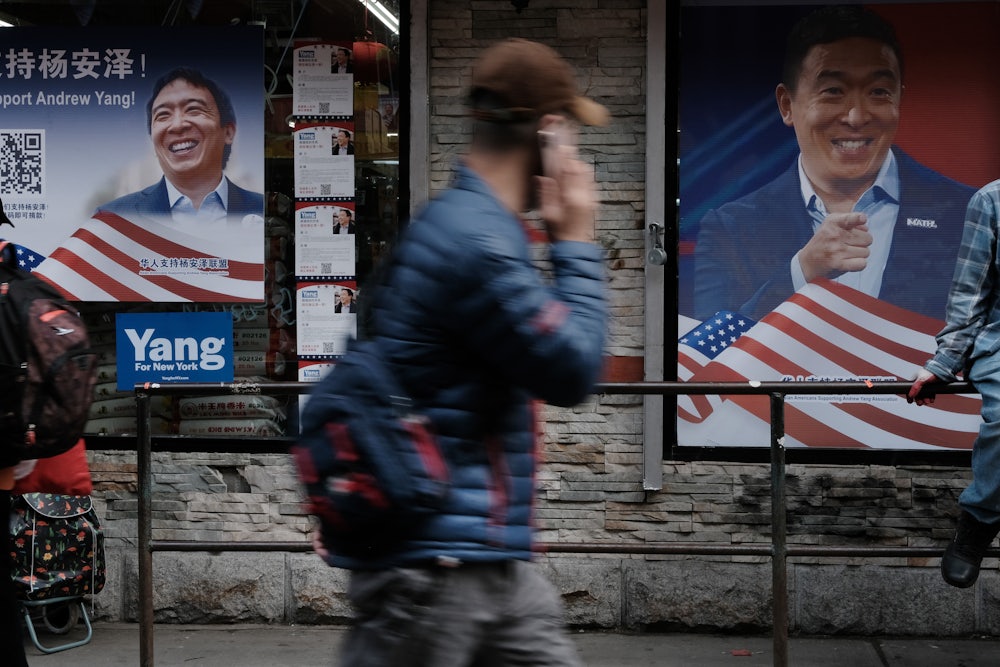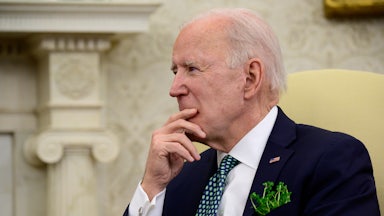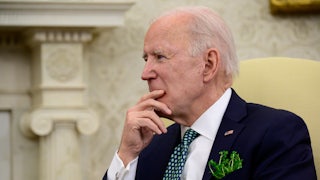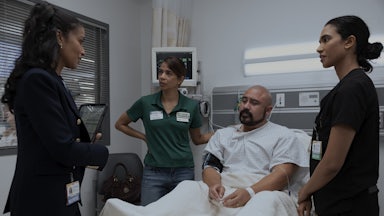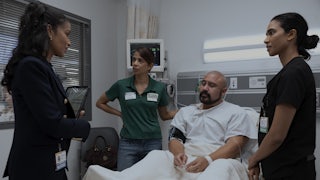Andrew Yang was, briefly, a corporate attorney, then an executive at a test preparation company, then the founder of a nonprofit that encourages entrepreneurship. (It has a mixed record.) He ran for president in 2020, more or less as the Reddit Candidate, embracing memes and borrowing some of his policy agenda from the tech world. His signature proposal was a universal basic income, and he gained an enthusiastic following in part by appearing on podcasts popular among highly online young men.
Yang was born in Schenectady, grew up in suburban New York, and settled in Manhattan after college. Since 2015, he has divided his time between New York City and New Paltz, a village in the Hudson Valley, about 80 miles north of Manhattan. Yang is currently running for mayor of New York City, and—though polling is sparse and possibly unreliable—he is the clear front-runner in the contest.
He has also never voted in a city mayoral election.
How is such a person, then, leading the polls in a Democratic primary in a very liberal city like New York? Many hypotheses have been offered. It might be his “big ideas, backed with data,” as described in an Atlantic profile. Maybe it’s that, as a reported profile in the New York Times opinion section put it, “He wants to make New York fun again.”
These pieces don’t explicitly say it, but the real reason Yang has had such runaway success in the mayoral primary is the same reason why he gets profiles in the Times and The Atlantic to begin with: He is a celebrity, and the people he is running against are not. Political consultants would say that he has “name recognition,” but it’s more than recognition: He is a television character that people have not only heard of but actually like.
In the Times, Michelle Goldberg describes how a crowd in Brooklyn “responded to the candidate much like the baseball fans at Yankee Stadium.” In The Atlantic, Annie Lowrey describes a surreal scene in which an unprovoked attack on a photographer quickly de-escalates when the attacker recognizes Yang and becomes starstruck.
I recently got a small peek into this dynamic myself: I was among the “gentrified brunch crowd” Goldberg describes greeting Yang as he made an appearance on Vanderbilt Avenue in Brooklyn earlier this month. I saw people excitedly recognize him and spontaneously decide to greet him and make conversation. (This phenomenon has led to some awkward moments for the campaign.)
A week later, at Coney Island with my family, I happened to witness a more common version of local politicking. As we were eating lunch, Jo Anne Simon, one of the leading candidates for Brooklyn borough president (a fairly powerless office, but still one representing a population about the size of Chicago), arrived on the boardwalk to much less acclaim. Simon has been involved in local Democratic politics for a very long time; she was elected a Democratic district leader and state committeewoman in 2004 and has been serving as a member of the State Assembly since 2015. When I saw her, she was flanked by staff or volunteers who were introducing her to voters. She was seeking out hands to shake rather than letting them come to her. Yang required no such introduction: He’s the guy from the 2020 debates, or from CNN, or from Reddit, or from The Joe Rogan Show. He is famous.
We tend to think of “celebrity politicians” as people who established reputations and gained fame in some other field before turning to politics, like Ronald Reagan or Jesse Ventura, but in many respects Andrew Yang became a celebrity by turning to politics. He was basically just a well-connected guy who was good at networking and who took advantage of the fact that people consume open presidential primaries as a yearlong reality competition show airing on cable news. He—like fellow neophyte 2020 candidate Pete Buttigieg, who at least had won some elected office before he decided to run for president—was notorious for never turning down an invitation to be on television. He famously guested on right-wing podcasts, but it might be more accurate to say he famously appeared on popular podcasts. (Goldberg’s profile in the Times closes with a run-in with a man who hates politics but loves Yang after first discovering him through Joe Rogan’s immensely popular show. At a much smaller scale, that show might be Yang’s Apprentice.)
One big advantage of being famous is that you automatically have a much easier time getting on television and having reporters write about you. In campaigns, this is called “earned media,” and it’s the reason why magazines like The Atlantic and The New Republic are writing about Yang and not his rivals, like Scott Stringer or Dianne Morales. But oddly enough, it’s a novelty to see a Democrat ride this kind of attention into office. While “celebrity politics” are deeply associated with liberals and Democrats—see, for example, the podcast hosted by Bruce Springsteen and a politician named Barack Obama—truly successful celebrity politicians in the U.S. are more often Republicans.
It’s not just Reagan, or Arnold Schwarzenegger. It’s Sonny Bono, Fred Thompson, Jim Bunning, and Jack Kemp. The current junior senator from Alabama is Tommy Tuberville, a longtime college football coach who got himself elected to the Senate the first time he ever ran for political office, in 2020.
These candidates don’t have a lot in common besides fame and political success, but it seems safe to assume that part of the reason a candidate like Tuberville can win a Senate election as a Republican is that he represents a political constituency that doesn’t believe in government and therefore doesn’t care if the person they’re voting for has any experience with it.
This is the disadvantage the celebrity candidate faces in Democratic politics, at least if they’re running against conventional politicians and don’t have the party establishment on their side. (Al Franken could win a Senate primary, in other words, but he never could’ve beaten an incumbent in a primary.) A certain type of Democratic voter—the type most likely to show up to vote in oddly timed primary elections, in fact—practically fetishizes “experience,” even if that experience might make a candidate less popular to the broader electorate that votes in the general election (see: Clinton, Hillary).
So when the actor and activist Cynthia Nixon ran against New York Governor Andrew Cuomo in 2018, she never stood a chance, despite her fame and popularity. Cuomo was a known quantity with years of vital experience as a bad governor; she was just a celebrity.
That’s the brilliant thing, then, about the Yang approach: Become a celebrity by running for president, and you immediately legitimize yourself. Millions of people have already seen him standing on a debate stage—as an equal—with a crowd of senators and the current president. Yang looks like a serious politician because he played one on TV.
I should point out that I really don’t have a problem with the concept of the celebrity politician. I don’t believe elite credentials or extensive professional records of political work should be prerequisites for running for any office at all. And Andrew Yang is a celebrity in large part because he is affable and genuine, and his one big idea—a universal basic income—appeals to a lot of people across the ideological spectrum. But Yang’s prominence still depresses me. Not because he doesn’t have a record of political service, but because he doesn’t have a record of political caring.
“I wasn’t actively involved in local politics, and I was living in New York, and as you know, New York is so blue that there isn’t that much to be engaged with, politically,” Yang (who, remember, has never voted for the office he’s running for) told Dave Rubin, when asked why he was so disengaged from politics before he ran for president.
This is in sharp contrast to (for example) celebrity candidate Cynthia Nixon, who had a record of political involvement and activism on behalf of New York City public schools, among other things. Nixon centered her campaign on raising awareness of the Democrats who were then canvassing with Republicans in the state Senate, and she helped defeat many of them in that year’s primaries. The Independent Democratic Conference was precisely the sort of thing a typical, checked-out Democratic voter might not know about. I doubt Andrew Yang knew about it, and if he were just an average, busy guy, I would understand that. But this is someone who suddenly wishes to have a lot of power in local government.
Yang is campaigning for a job that has a lot more responsibility than the one Tuberville won. A senator has power, but mainly as part of a bloc. If a senator is an idiot, the damage he can do is basically limited to his importance to his caucus. A mayor, especially of a large city like New York, has less power over national affairs than a senator. Yang would struggle to enact the sort of lofty policy he likes to talk about, around automation and the rest of his Big Ideas, but he would have much more direct managerial responsibility than any legislator.
As mayor, Yang would have to figure out how to get lead paint and mold out of the city’s public housing system, how to design safer streets, how to make the buses run more efficiently, how to collect garbage, how to assign children to public schools and operate them fairly, how to manage the paramilitary known as the NYPD, and what to do with the atrocity known as Rikers Island. And, for all the talk of his ideas, he has not shown that he has thought very much about any of those parts of the job. This is a man who once said he would be able to wrest control of New York City’s subway system back from the state simply because he’s friends with the governor’s brother.
In The Atlantic, Lowrey wrote that Yang “wanted to get back into politics, with a goal of accumulating as much personal influence as possible.” If a neophyte candidate doesn’t have their own record of thinking about the issues they will face in office (as Nixon, or Ronald Reagan, clearly did), you have to ask where they’re getting the statements they make on the campaign trail. (We may have an answer to that question. As City & State reporter Jeff Cotlin detailed this week, a veteran of former Mayor Michael Bloomberg’s campaigns runs the lobbying shop that effectively manages Yang’s campaign.)
In my darkest moments, I almost hope Yang wins, purely so that he will be forced to do one of the worst political jobs in America. But I like New York, and my neighbors, more than I dislike Andrew Yang. I hope the next mayor is someone qualified, not by experience, but by interest in the job as it exists, and not as an addition to a political résumé.
